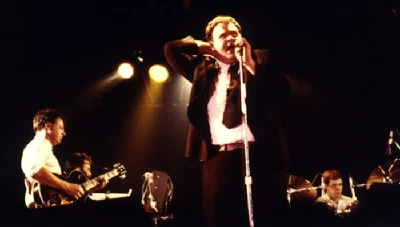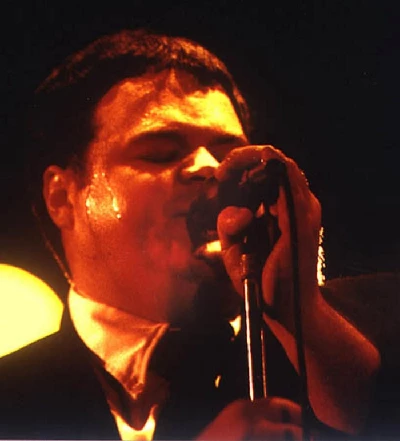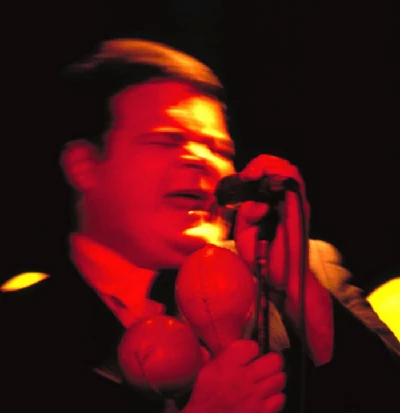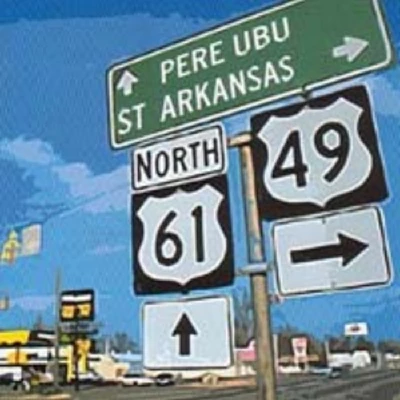Pere Ubu
-
Interview with David Thomas
published: 20 /
8 /
2005
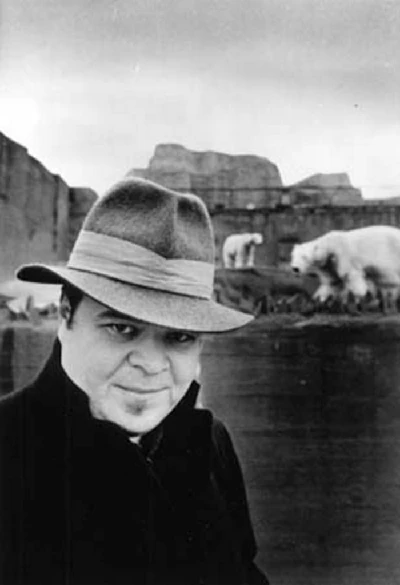
Pere Ubu have just re-released their 2002 album 'St Arkanas' and are about to embark on a new British tour. Frontman and founder David Thomas chats to Anthony Dhanendran
Article
Pere Ubu have always been an underground band. From mid-1970s Cleveland, where the band first started, they were never going to be the kind of band that plays enormo-dome stadium gigs or appears on Radio 1. Although frontman David Thomas says the band were never part of any scene, they have undeniably been a huge influence on many prominent leftfield bands from the 1970s to the present day. Reformed several times over the years, the band’s latest incarnation is in the midst of promoting their re-released album 'St. Arkansas', which was originally released in 2002. Pennyblackmusic asked David Thomas, who is now based in Hove near Brighton, to answer a few questions as he prepared the band for a forthcoming British tour.
PB : Much of Pere Ubu's early sound seems to come from a desire to innovate, to make something that sounded different. Is that the case, and were there people or bands you drew upon at the same time?
DT : There was no particular drive to sound different or to innovate. We did simply did what came naturally. I suppose we were therefore inherently "different" and "innovators."
I have a problem with these concepts. I have always seen what we do as being very traditional, that we were part of a tradition of electric folk music - which is what rock music is - and we were aware of where in the stream of the development of electric folk music that we found ourselves. We were aware of how we fitted into the stream of things and what was expected of us. We had no programmatic urge or design to revolutionize rock music, simply to fulfill its manifest destiny.
In the early 70's that destiny was to integrate synthesized sound, abstract sound and musique concrete into music. Of course by doing so we understood that we would change the course of music. Clearly some thought had to go into this and "strategies" had to be developed and evolved for this purpose. If you want to call that innovation, fine. We were concerned with practicalities. We could see the direction - it was obvious to anyone who wanted to look. We had only to figure out how to get from one point to another.
PB : 'St Arkansas' sounds like it comes from a different place, a different feeling, to your earlier work. Do you have the same drives, as far as making music goes, now as you did in those early days and again when you were making 'St Arkansas'?
DT : Sometimes I wonder what people actually mean by innovation. I suspect that what they really mean is style and fashion. What innovation actually amounts to is evolving ways to say the same old thing better, more thoroughly. There is nothing new under the sun, which means not a single iota of the human experience has changed in thousands and thousands of years. There is nothing that you know or feel that someone else has not already known and felt a whole long time before you were born. Technology from time to time provides means of expressing that same old thing more powerfully or differently.
'St Arkansas' is as innovative as anything else we have ever done. 'Michele' is not innovative? Phooey. If the fashion is as it is these days for men to whine pathetically then that has nothing to do with innovation. If the fashion is to engage in freakish sonic grotesqueries then that has nothing to do with innovation.
Innovation is telling the human story better. I am only interested in time as expressed in centuries, not 3 year pop cycles. The Carter Family will be selling records when John Lennon is an obscure footnote. Or a pub quiz question along the lines of Who wrote the most embarassing song of the 20th Century?
PB : You're about to make a British tour in mid September. New wave and post-punk music is undergoing something of a rediscovery in the UK. Do you feel part of that and are you happy about it, or is that kind of nostalgia not something that interests you?
DT : I am not interested in nostalgia, especially for something like punk which was an abomination. Since 1975 I've said exactly the same thing over and over and over to no good at all - Punk is a counter-revolutionary coup by multi-national corporations designed solely to sell colored beads and shiny baubles to the gullible, i.e. youthists. Whatever cycle is currently being regurgitated it will be of no benefit whatsoever to us.
We didn't fit in 1975 and we don't fit now. The only people who like us are people who don't fit. There is always a pitifully small number of these people spending money in the marketplace.
PB : Your music seems to have always been related to politics and current affairs, or history. Were you and are you interested in politics and were or are you politically active? How do you find America now compared to how it was when Pere Ubu began?
DT :Our music has always been remarkably detached from politics or current events or anything topical. A couple years ago I made a comment to a friend that I hadn't seen any police on the streets of Hove in years. He reacted as if this was a political statement. It was simply an observation, a suggestion of a fact that can be empirically tested. That said, and just as an incidental observation, America is far more interesting and open now than when Jimmy Carter was trying to make us turn down the thermostat and wear sweaters.
PB : The biggest gap in Pere Ubu's back catalogue is between 1981 and 1988. What were you doing in the meantime?
DT : I think we stopped touring as the band at the end of 1982 and unofficially slipped into a sabbatical mode in the middle of 1983. I did some solo projects making various experiments that often involved Ubu members.
One of these, the Wooden Birds, made a record called 'Blame The Messenger' that featured an Ubu-esque line-up and was all but in name a Pere Ubu record. That led to 'Tenement Year'.
There is a summary of these things at http://www.ubuprojex.net/solo.html
PB : Do you feel more accomplished or settled as a musician? Do you still have something to prove after 15-odd albums?
DT : I know what I have accomplished but I do not feel accomplished. I am lazy and lucky and I have the fortune to attract musicians of a high calibre. I can work very hard but I hate it - there's too much pain and uncertainty involved. I'd like to stop. I day-dream of being able to stop but I haven't finished what I started and I don't suppose I ever will.
I figure I've got about 10 years of useful life left considering the various physical problems I have. I doubt if I will succeed. I have always been a failure - an under-achiever - and I guess I'll end up that way. Oh well...
PB : Will you be recording again after this tour? What's the future for you and for the band?
We have begun work on a new album - working title 'Electricity' - and hope to finish it after the tour. We will continue to do live film underscores ('It Came From Outer Space 'and' X', 'The Man With X-Ray Eyes). The underscore projects are a lot of fun to do.
PB : Thank you.
Pere Ubu play the London Islington Academy on September 18.
Band Links:-
http://www.ubuprojex.com/
https://en-gb.facebook.com/official.ub
https://twitter.com/ubuprojex
https://en.wikipedia.org/wiki/Pere_Ubu
Picture Gallery:-
